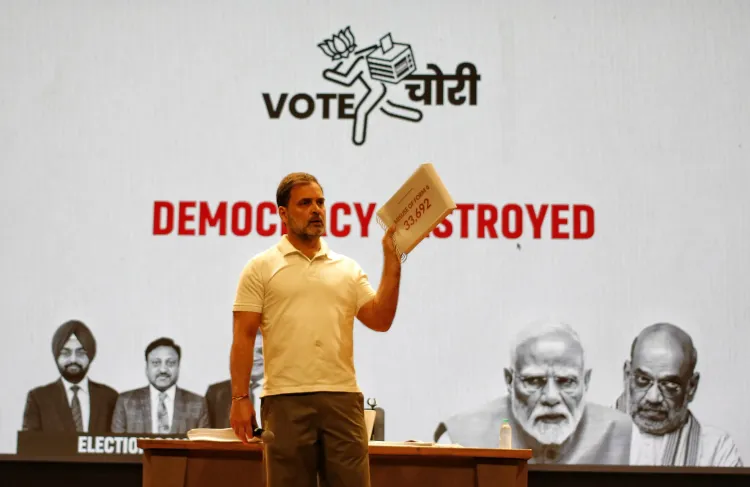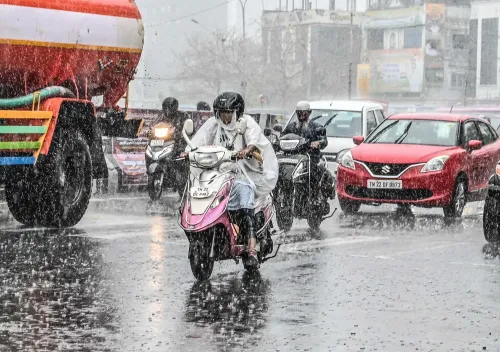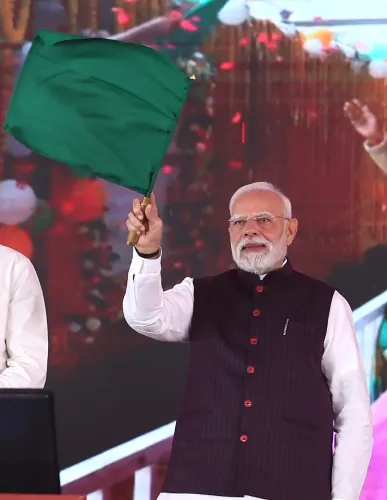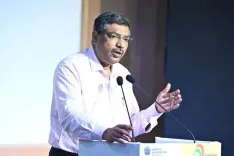Will Rahul Gandhi Sign a Declaration or Apologise to the Nation?

Synopsis
Key Takeaways
- ECI demands accountability from Rahul Gandhi regarding his allegations.
- Sign statutory declaration or apologize to the nation.
- Election integrity is a crucial issue in India's democratic process.
- Challenges to election outcomes must follow legal protocols.
- Transparency in allegations is necessary for maintaining public trust.
New Delhi, Aug 8 (NationPress) The Election Commission of India (ECI) has expressed significant concern regarding the assertions made by Congress leader Rahul Gandhi about widespread voter list manipulation. The ECI has challenged him to either affirm his allegations under oath or make an apology to the nation.
According to sources from the Election Commission, if Gandhi genuinely believes in his statements and the analysis he presented to the media on Thursday, he should not hesitate to sign the statutory declaration mandated by election regulations.
"If he refrains from signing the declaration, it suggests a lack of confidence in his own assertions and conclusions, which the Commission finds nonsensical. In such a scenario, he is obliged to apologise to the nation," the sources remarked.
This response from the ECI followed Gandhi's press conference where he claimed there was systemic voter fraud in the Mahadevapura Assembly segment of Karnataka’s Bangalore Central Lok Sabha constituency, citing what he referred to as "irrefutable evidence" uncovered by the Congress party’s internal inquiry.
Gandhi contended that while his party, Congress, led in all other Assembly segments within the Bangalore Central seat, it suffered a loss due to fraudulent electoral practices in Mahadevapura.
In the wake of the press conference, the Chief Electoral Officer (CEO) of Karnataka communicated with Gandhi, requesting him to provide a signed declaration under Rule 20(3)(b) of the Registration of Electors Rules, 1960, along with the specific names of voters implicated in the alleged irregularities.
In his correspondence, the CEO emphasized that any challenge to the election results must be brought forth through an election petition to the High Court.
"It is noted that during your press conference on August 7, you referred to the inclusion of ineligible voters and the exclusion of eligible voters from the Electoral Rolls," the letter indicated.
“You are kindly asked to sign and submit the declaration/oath under Rule 20(3)(b) of the Registration of Electors Rules, 1960, along with the names of those voters so that necessary proceedings can be initiated,” it further stated.









